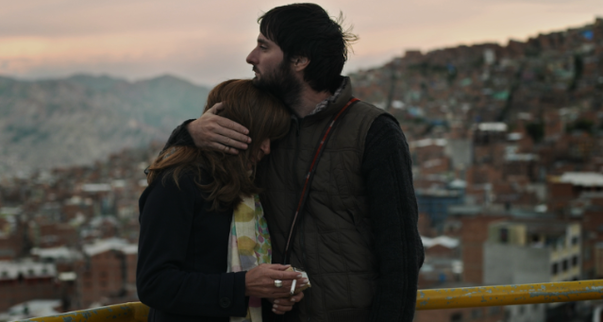Images Of Nostalgia
Sebastián Morales of the 2013 Talent Press Buenos Aires reviews movies LA PAZ by Santiago Loza, and LA PAZ EN BUENOS AIRES by Marcelo Charrás.

LA PAZ, directed by Santiago Loza.
Even though no Bolivian films were programmed in this edition of BAFICI, there are two that indirectly speak about our country, more precisely about our seat of government. These are the Chilean LA PAZ directed by Santiago Loza, and the Argentinian LA PAZ EN BUENOS AIRES directed by Marcelo Charrás. The latter tells the story of a legendary Bolivian character: the Ciclón, a memorable wrestler.
Wrestling in Bolivia and its distinctive feature, the Cholita Wrestlers, are subjects which have been covered by various documentary films. In his film, Charrás chooses the observational documentary to describe peculiar spaces: Bolivian neighborhoods in Buenos Aires.
In this way, Charrás approaches the Ciclón not only as a legend of the underworld, but he also takes interest in the figure of the immigrant, in its ability to create its own spaces (Slorterdijk would say spheres) far from its mother country. That is in fact what the film's title refers to: a world inside another world.
In a way, Charrás' visual discourse is similar to the one Diego Mondaca develops in Ciudadela. In both films, the act of observing leads to the discovery of codes surrounding two particular worlds which, in some way, act as walls separating them from the worlds around them (in Charrás' case this does not mean that they establish a ghetto without outside contact). On the one hand, the Ciclón and wrestling, on the other the construction of worlds in impossible places (quoting Slorterdijk once more): the object is to go deep into places of marginalization.
At first, the combination of these two marginalities seems simply unconceivable: is it possible to imagine a Bolivian neighborhood in Buenos Aires where people train for wrestling? How has the legendary Ciclón built these spaces and become part of them? The question can only be answered from a historical perspective.
The links connecting Bolivia, Buenos Aires and wrestling can only be discovered through the remembrance of the mother country. The Ciclón is a retired wrestler who longs for his land (even though he lives surrounded by Bolivian citizens) and his fights against his archrival the Conde, and tries to become the link between Bolivia and his own children: immigrants who have been living in Buenos Aires for a long time. Like in many films of the last century (including ROJO, AMARILLO Y VERDE), LA PAZ IN BUEONOS AIRES deals with Bolivian citizens’ nostalgia for their land, perhaps one of our people’s distinctive features.

